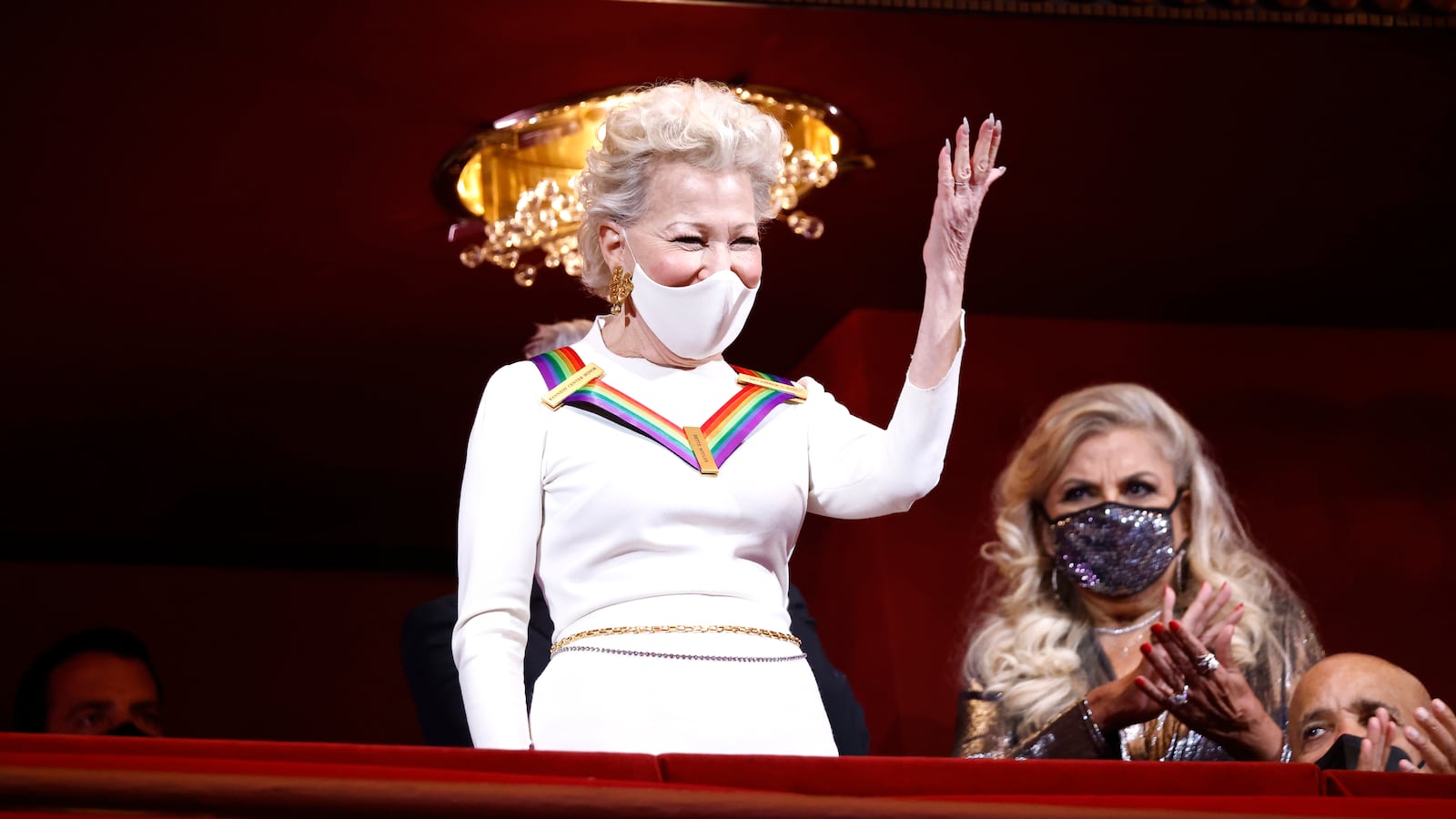You’ve probably heard about the coterie of celebrities—and some less notable figures—that came to be known as Resistance Twitter for their collective disdain of Trump during the 2016 election. It included actors and comedians like George Takei, Debra Messing, Jimmy Kimmel, and Chelsea Handler, and they would routinely dunk on the former reality TV host for his bigoted outbursts, harmful policies, and physical appearance. Among them was—and still is—legendary performer Bette Midler, who was a fiery voice on Twitter prior to 2016 but has been lionized more recently as a voice of the left for criticizing the Trump family and the Republican Party.
On Monday, however, Midler was accused of liberal, elitist snobbery by Twitter users on both sides of the aisle after calling out Democratic Senator Joe Manchin of West Virginia and the entire state for his opposition to President Biden’s progressive Build Back Better Bill that would fund COVID-19 relief and climate change solutions, among other things.
“What #JoeManchin, who represents a population smaller than Brooklyn, has done to the rest of America, who wants to move forward, not backward, like his state is horrible,” she tweeted. “He sold us out. He wants us all to be just like his state West Virginia. Poor, illiterate and strung out.”
As you might expect, it didn’t take long—40 minutes to be exact—for the multi-Grammy winner to issue a perfunctory apology to West Virginians for her degrading comments.
She followed up with: “I apologize to the good people of WVA for my last outburst. I’m just seeing red; #JoeManchin and his whole family are a criminal enterprise. Is he really the best WV has to offer its own citizens? Surely, there’s someone there who has the state’s interests at heart, not his own!”
This isn’t the first time Midler’s fiery opinions have gotten her in trouble. Her social and political commentary on Twitter often teeters between bombastically humorous and frustratingly passé. In 2018, for example, she paraphrased the infamous 1972 John Lennon and Yoko Ono song in a tweet stating, “Women are the n-word of the world, raped, beaten, enslaved married off, worked like dumb animals; denied education and inheritance; enduring the pain and danger of childbirth and life IN SILENCE for THOUSANDS of years. They are the most disrespected creatures on earth.”
While her anger was justifiably in response to the results of the FBI probe into then-Supreme Court Justice nominee Brett Kavanaugh, she made the common white-feminist error of using Black people’s oppression as a metaphor for women’s suffering, as if Black women don’t exist and certain women’s experiences (notably white women’s) are comparable to racism. The tweet was heavily scrutinized, and she posted an apology hours later.
Later, in 2020, she mocked Slovenian-born Melania Trump for “not speaking English” as she was giving a speech at the Republican National Convention and, in another tweet, called her an “illegal alien.” It’s a frustrating tendency among certain liberals to insult conservatives by using discriminatory language in manners seen as subversive and “punching up” when aimed at “bad” people. An example of this was when Jimmy Kimmel hurled homophobic jokes at Sean Hannity during a beef with the Fox News commentator back in 2018. Chelsea Handler (and a slew of other comedians) also couldn’t mock Trump during his presidency without suggesting he was having a sexual affair with Vladimir Putin or commenting on his weight.
Likewise, Midler clearly thought by disparaging occupants of a red state for the myriad ways capitalism and government leaders have failed them, including an opioid epidemic, she wouldn’t come off as an out-of-touch elitist because these are the living conditions poor, rural people who voted for Trump deserve, apparently. But many of Midler’s critics and people on the left have clearly grown tired of the “us” vs. “them” framework that educated, white urbanites use to differentiate themselves from less educated, rural white people and overlook the multiracial working class. Not to mention, these distinctions also give self-proclaimed “cultured” individuals like Midler, who was born and grew up in Hawaii before building a career in New York, the moral high ground, as if both demographics don’t knowingly benefit from white supremacy and, subsequently, impede social progress in their own ways.
It’s unclear if Midler sincerely altered her views on Appalachia in such a short timespan or whether her apology was primarily the direction of an anxious publicist (I’m leaning toward the latter). However, we can be certain that this won’t be the last time she puts her foot in her mouth.





